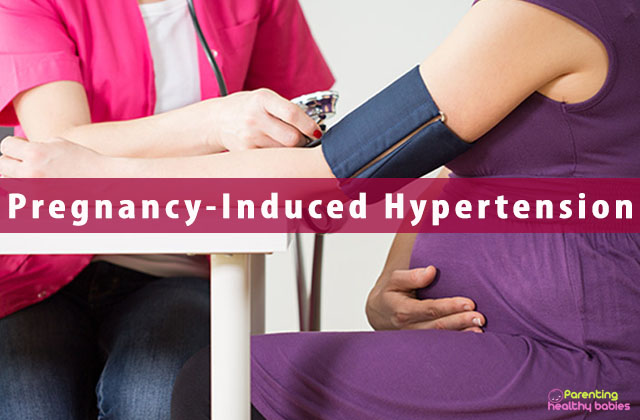The condition characterized by high blood pressure during pregnancy is also known to be as pregnancy induced hypertension (PIH), which is also called as Gestational hypertension. This affects about 6%-8% of the pregnant women, which means that 1 out of every 14 pregnant women are affected by pregnancy-induced hypertension (PIH). This can also lead to further serious condition called preeclampsia, which is also referred to as toxaemia. This is more common in pregnant women over the age of 40 or in pregnant teens. PIH usually develops after the 20th week but can also develop either at the time of delivery or after the delivery.
Pregnancy-Induced Hypertension (PIH): Know the Facts
Types of Hypertension During Pregnancy
During pregnancy, high blood pressure can present itself in a number of ways. The 3 most common types of gestational hypertension are as given below:
Chronic Hypertension
Women who have had the condition of high blood pressure before pregnancy and early in pregnancy and also continue to have it after the delivery
Gestational Hypertension
This refers to the high blood pressure that develops after the 20th week during pregnancy. However, it goes away after the delivery.
Preeclampsia
This severe condition develops due to both chronic hypertension and gestational hypertension after 20th week of pregnancy. High blood pressure and protein in the urine are some of the symptoms of the same. In case, it is not treated, this may lead to serious complications not only for the mom but also for the baby.
Who has an increased risk of developing gestational hypertension?
Some women have an increased risk of developing gestational hypertension. These are as given below:
- First time moms
- Women carrying multiples
- Women whose siblings had PIH
- Women older than 40 or those younger than 20
- Women with high blood pressure or kidney disease prior to pregnancy
How to know if you have gestational hypertension?
Your blood pressure and urine levels will be checked by your health care provider at every prenatal check-up. Not only this, but your doctor may also check your kidney and blood clotting functions, blood tests or may as well perform an ultrasound scan that will help to determine your baby’s growth. Doppler scan may be used to measure the efficiency of blood flow to the placenta.
Symptoms of PIH
Take a note of the following symptoms and call your doctor right away if you have n ay of these symptoms:
- Vomiting blood
- Blood in the urine
- Rapid heartbeat
- Dizziness
- Drowsiness
- Excessive nausea
- Buzzing sound in ears
- Severe headaches
- Blurred vision
- Abdominal pain
- Sudden blindness
- Double vision
- Swelling of the feet and hands
- No urine or smaller amounts of urine
- fever
Does gestational hypertension affect the baby?
Well, yes! This will prevent the placenta from getting enough blood, which in turn will supply less oxygen and food to the placenta. This will thus result in low birth weight. However, if hypertension is treated in the early stages of pregnancy, most women can still deliver a healthy baby. On the other side, if the hypertension is severe, this may lead to preeclampsia. This condition can have more severe effects on the mom and the baby.
Treatment for Gestational Hypertension
The treatment for gestational hypertension will largely depend on how close one is to the due date. Your health care provider may want you to deliver your baby as soon as possible, in case the due date is very close and the baby has also been developed enough. But, if the baby is not fully developed and you have mild hypertension, your doctor may ask you to follow any of these:
- Increase prenatal check-ups
- Consuming less salt
- High fluid intake i.e. drinking 8 glasses of water every day
- Complete rest by lying on your left side which will take the weight of the baby off the major blood vessels
Prevention
Although, there is no such way to prevent this condition but some (not all) factors that contribute to high blood pressure can be controlled. Your doctor may instruct you about your diet and exercise routine, so it is recommended if you follow his instructions with due care. Listed below are some ways that can help to prevent gestational hypertension:
- Stay hydrated. Drink at least 8 glasses of water daily.
- Exercise regularly
- Highly avoid caffeine and other beverages containing the same.
- Stay away from alcohol.
- Elevate your feet a number of times during the day.
- Decrease the amount of junk food and fried foods and increase the amount of protein intake.
- Get enough rest.
- Take all the prescribed medicines and additional supplements that have been prescribed by your doctor.
